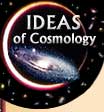
|
|
 |
Galileo
and Theology |

|
|
| Galileo's
conflicts
with accepted authority were first with Aristotelian philosophers in Italian
universities. They tried to bring the Catholic church, particularly its
police arm, the Roman inquisition, into the battle against Galileo.
High church officials did not initially oppose Galileo's science. Indeed, one cardinal remarked that the Bible tells us how to go to Heaven, not how the heavens go. Galileo wrote that his science was "in contradiction to the physical notions commonly held among academic philosophers" and "stirred up against me no small number of professors." They "hurled various charges and published numerous writings filled with vain arguments, and they made the grave mistake of sprinkling these with passages taken from places in the Bible which they had failed to understand properly." They had "resolved to fabricate a shield for their fallacies out of the mantle of pretended religion and the authority of the Bible."
Galileo argued that if his scientific "doctrine were proved, then it could not contradict the Scriptures when they were rightly understood." He recognized "that it is very pious to say and prudent to affirm that the holy Bible can never speak untruth-whenever its true meaning is understood." But for "discussions of physical problems we ought to begin not from the authority of scriptural passages, but from sense-experiences and necessary demonstrations." Galileo advised Catholic officials not to take formal action against Copernican theory while new evidence from the telescope was still coming in. He advocated metaphorical rather than literal interpretation of biblical passages in which the sun seemingly moved. In 1992, Pope John Paul II set up a special committee to re-examine the Galileo case and the papacy offered an official apology for Galileo's sentence. |
Copyright ©. Brought to you by the Center for History of Physics, a Division of the American Institute of Physics |
|
|||||